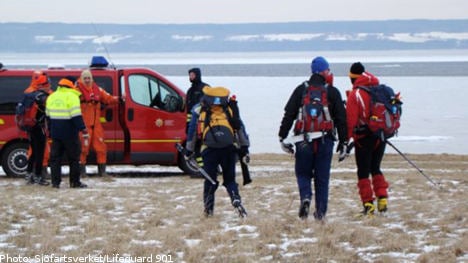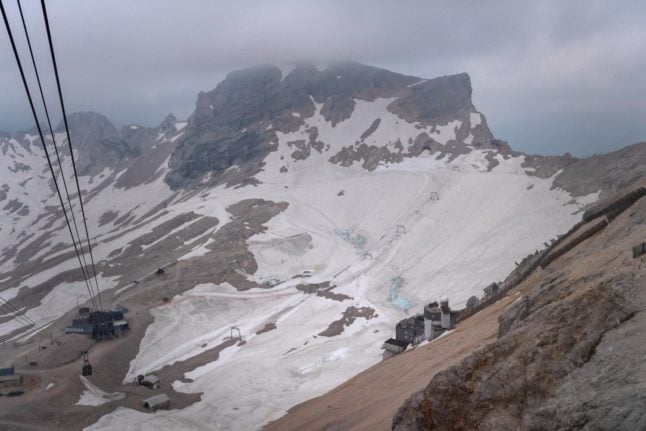The tour skaters were out on the frozen lake when a massive chunk of ice broke off, leaving them stranded.
The group were winched to safety by a helicopter, with a hovercraft from the Swedish Sea Rescue Society (Sjöräddningssällskapet) also in attendance. No injuries were reported, nor had anyone fallen into the icy waters.
The skaters were then deposited on the island of Visingsö in the middle of the lake, which is Sweden’s second largest body of water.
The Sea Rescue Society then assisted them to the lakeside town of Gränna.
The deep waters of Lake Vättern are notorious for channels opening up in the ice as a result of windy weather and The Local reported earlier this week that a total of ten people had fallen through the ice.
A rapid response from the Sea Rescue Society once again averted serious injuries or death, with victims reporting only cases of hypothermia.
Tour skating is a popular winter pastime for many Swedes. Whereas in the Netherlands skaters followed marked routes on frozen canals and lakes, in Sweden they usually choose their own tours, relying on local advice.
According to Swedish Life Saving Society (Svenska Livräddningssällskapet – SLS) statistics around 10 percent of ice related drownings per annum can be attributed to tour skating.



 Please whitelist us to continue reading.
Please whitelist us to continue reading.
Member comments